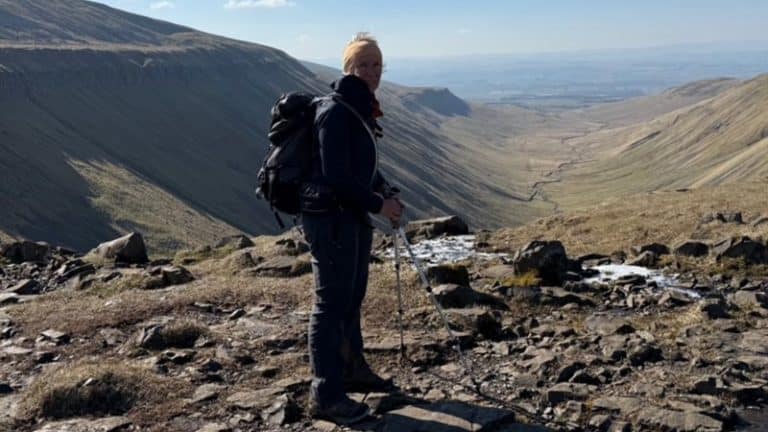
Jenny tackles another walking endurance challenge
FORCE chair of trustees Jenny Forrest is tackling another long distance walking challenge to raise money for our charity. She…
Supporting local research is one of FORCE’s key objectives, alongside supporting innovation to improve patient care and operating our Support and Information Centre.
FORCE provides funding for clinical research at the Royal Devon & Exeter Hospital as well as at the University of Exeter Medical School, directed and supervised by a team of scientists and clinicians.
FORCE was established in 1987 with a clear mission to advance cancer care in Exeter and beyond.
Our co-founder, Dr Chris Rowland, was involved in pioneering work in home-based chemotherapy and individualised radiotherapy and his studies established Exeter on the global cancer research map. In 1991 FORCE appointed a clinical research assistant, laying the foundation for a highly successful clinical research programme at the Royal Devon & Exeter Hospital.
In the first 10 years our focus was on research and buying equipment for the hospital.
The charity developed from the merger of two local appeals – the Selectron Appeal and HOPE (Home Oncology Programme Exeter), under the clinical direction of FORCE co-founder Dr Chris Rowland.
HOPE enabled patients to receive treatment at home rather than in hospital while continuing with normal activities of daily living, giving them a greater sense of control over their own lives.
Dr Rowland also investigated the scientific basis for this method of treatment, conducting research into which chemotherapy drugs could be given in this way and how the body dealt with them, so as to establish the best treatment for that patient.
Pioneered in Exeter, home infusional chemotherapy was a huge success and became available across the UK and around the world.
Also in 1987, with support through FORCE, Dr Rowland brought individualised radiotherapy in the form of high dose-rate internal Selectron treatment to Exeter. He and his team undertook pivotal work with this treatment machine, making Exeter the first centre in the world to develop its use in a wide range of cancers. As a result of this work, such radiotherapy treatment equipment is now standard nationally and internationally.
Through the success of the Selectron work and the HOPE programme, Exeter became firmly established on the national and international cancer research map.
In 1991 FORCE appointed a clinical research assistant, and it was this post which became the foundation for the highly successful clinical research programme at the Royal Devon & Exeter Hospital today.
FORCE funds an ongoing and extremely productive programme of cancer research in Exeter. The results have been published internationally and widely presented at conferences both at home and abroad. The research has led to considerable scientific collaboration and has attracted further external funding. Perhaps most importantly, the research studentships funded by FORCE provide vital training for cancer researchers of the future. We are realistic about what we can achieve but we know our funding stimulates research locally that can have much wider benefits.
FORCE-funded research is directed and supervised by a team of scientists and clinicians, all of whom are researchers with the University of Exeter Medical School. The involvement of both basic scientists and consultant physicians ensures that the research is not only scientifically rigorous but also, importantly, that it is clinically relevant. This exciting work currently involves two doctoral students, researching into two major areas – brain metastases and the secondary spread of ovarian cancer.
Our trustees are always open to requests for funding and we continue to welcome applications for resources that will promote the well-being of local cancer patients and the wider community. Applications should be made via email to meriel.fishwick@nhs.net